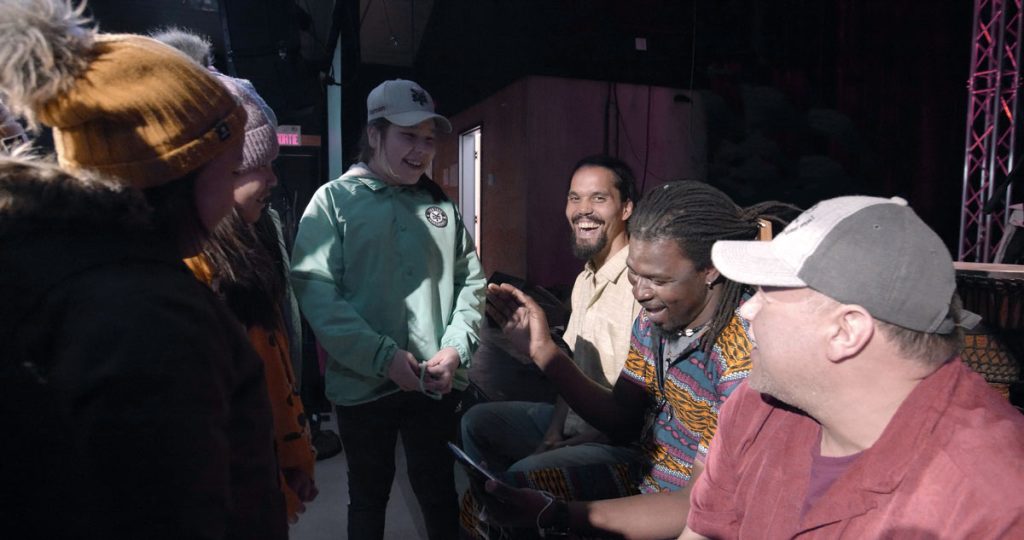As you work on a project, you are often so engrossed in the process, the technicalities and the subject that you sometimes start losing objectivity and begin to question everything you are doing. Doubts start appearing one by one and you wonder if what you created will have the impact intended and how it will be received by your audience. I guess this process keeps you humble.
Ultimately, you have to let go and trust that you did the very best you could with the content on hand (considering all the obstacles of the pandemic) and that this is a stepping stone for bigger and more in-depth discussion. You also need to put your trust in the viewers’ ability to draw from it, make their own conclusions without the need to explicitly spell everything out.

Although La Boîte has a few screenings (in French) under its belt and as we prepare for more screenings in the Spring, we felt the need to reach out to a friend and well-regarded cinematographer (now retired) to get an honest and professional perspective on the documentary.
Below is his review of Mamu Ensemble Together.
First of all let me say that I found the images strikingly beautiful.
And perhaps the reason for that beyond the exemplary, technically excellent cinematography, is the way your subjects are depicted, that is simply as themselves, vulnerabilities clearly evident.
And that intimacy is what draws a viewer in, the person, speaking or making music is vulnerable, and that in turn exposes the vulnerability of the viewer. That vulnerability, not being a conscious act but rather an emotional reaction to what they see, as real and authentic.
The viewer, I believe, can no longer “dismiss” this person, this “other” because of the sensitive, non judgemental aspects of the camera’s “eye” and of the direct and accepting message apparent in all the dialogues, the situations, and the direct to camera “conversations”.
As a viewer, one must engage in a reciprocal way, to such a direct, “one on one” conversation, and the “other” ceases being the “other” and the viewer then changes in discreet but tangible ways, not just about accepting the person on-screen, but also, by default others who look like him or her, and can no longer be dismissed or categorized, but rather additional steps might be taken in future encounters, with the now innate knowledge that every or any person can be interesting. That it is wrong to prejudge a person or a situation.
This is what your film absolutely and wonderfully accomplishes.
We see “Canadians” opening up, exposing their own vulnerabilities in so doing, and quietly making the very point of the film, of the exercise of this band of likeable musicians, reaching out, and being rewarded.
Your viewers will likewise feel a reward for getting to know these people who seem to have a love of life, of others, despite the fact that they may have been judged (unfairly) so much, yet as one of them said ,”I can accept you the way you are, can you not accept me?” That phrase in particular, with its searing simplicity, and clarity, is impossible to refute.
There are others, who surprisingly speak more as philosophers, on the subject of racism, because they have had to live with it and confront it. In turn, the viewers, regardless of previous prejudices, must now not only realize them, but also question those prejudices. And this is the very success of your film.
I have to commend the exceptional camera work, and the steady, hugely creative editing that kept me watching to the end. A beautiful, quietly powerful film. Bravo & Brava.
Jim Aquila, csc